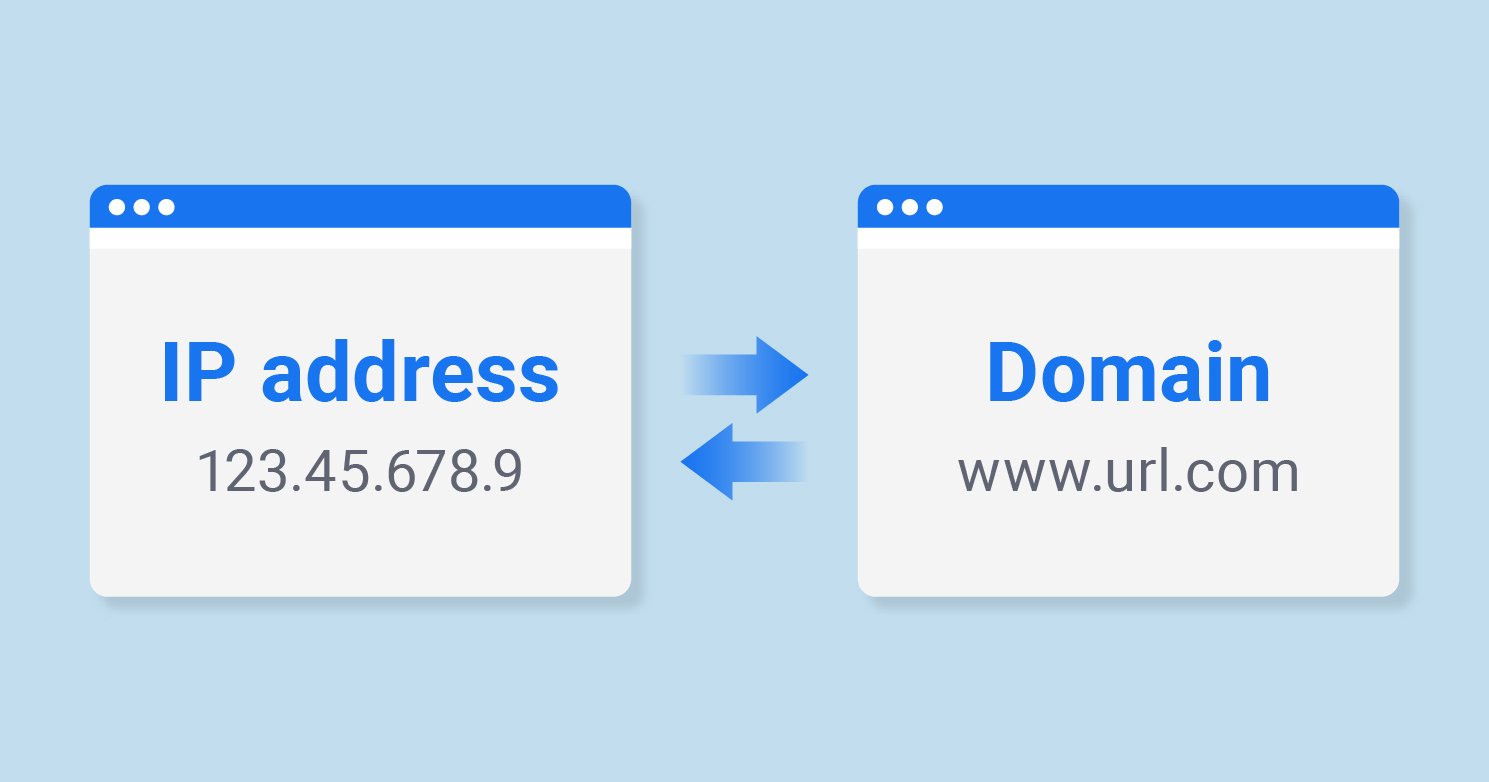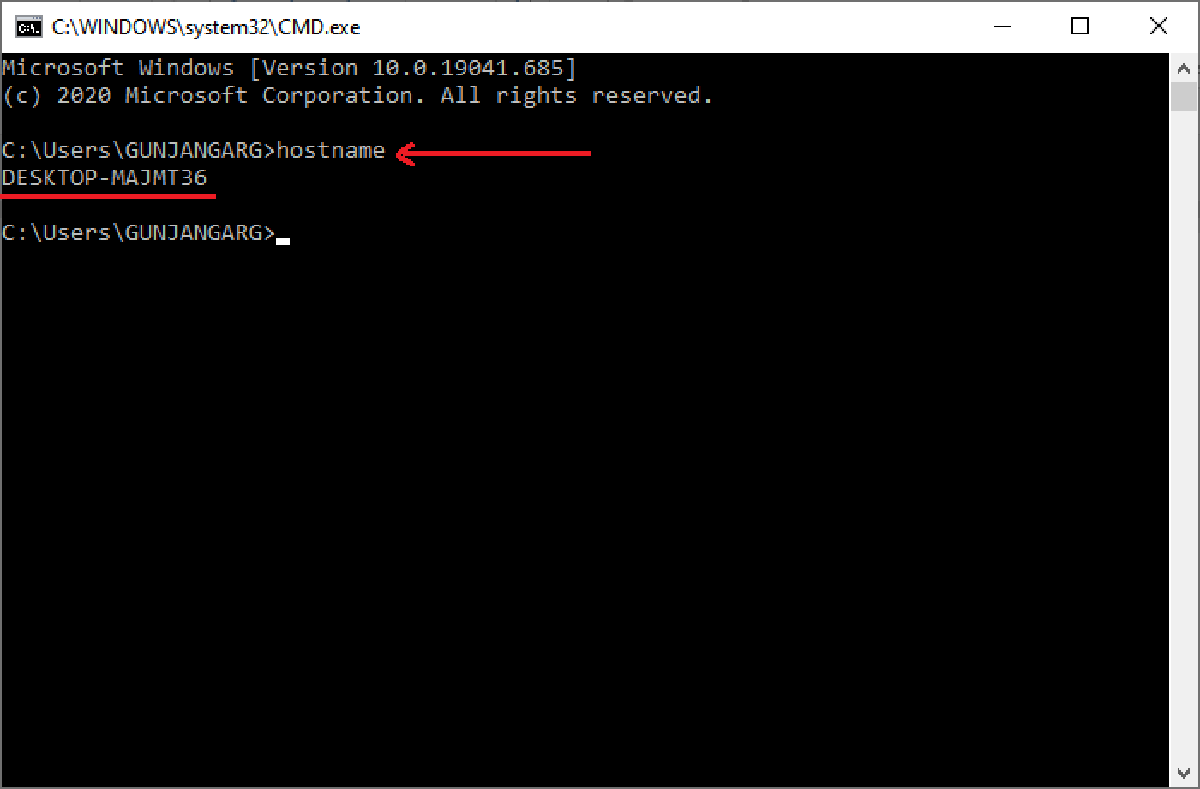Introduction
Welcome to our guide on how to get a website’s IP address! In today’s digital landscape, websites play a crucial role in our everyday lives. Whether you’re an individual browsing the internet or a business owner managing your online presence, understanding the fundamentals of a website’s infrastructure can be valuable.
One such fundamental element is the IP address. An IP address, or Internet Protocol address, is a unique numerical label assigned to each device connected to a network. It serves as an identifier for devices, enabling them to communicate with each other over the internet. In simpler terms, an IP address is like the “phone number” of a website, allowing it to be accessed and interacted with by users all around the world.
Knowing how to find a website’s IP address can be beneficial for several reasons. For example, it can help you troubleshoot network-related issues, identify the server location of a website, or even protect yourself from potential security threats. Whether you’re a web developer, a cybersecurity enthusiast, or simply curious about the technical aspects of the internet, this guide will walk you through various methods to obtain a website’s IP address.
In the following sections, we will explore different techniques to find a website’s IP address. We will start by using the command prompt, a powerful tool available on most operating systems. Then, we will delve into online tools specifically designed to retrieve IP addresses. Finally, we will explain how to use DNS (Domain Name System) lookup to obtain the IP address of a website.
By the end of this guide, you will have a comprehensive understanding of how to get a website’s IP address using different methods. Whether you’re a technical expert or a novice internet user, these techniques will empower you with knowledge about the inner workings of the internet.
What is an IP Address?
An IP address, short for Internet Protocol address, is a unique set of numbers assigned to each device connected to a computer network. It serves as a digital identifier, enabling devices to communicate and exchange data over the internet.
Think of an IP address as the equivalent of a physical address in the online world. Just like how you need an address to send mail to someone’s house, devices on a network need IP addresses to locate and connect with each other.
There are two types of IP addresses: IPv4 (Internet Protocol version 4) and IPv6 (Internet Protocol version 6). IPv4 addresses consist of four sets of numbers separated by periods (e.g., 192.168.0.1), while IPv6 addresses use a more advanced hexadecimal format with additional sets of numbers and colons.
Each IP address is unique, ensuring that no two devices on a network have the same identifier. This uniqueness is crucial for proper communication and resource allocation within the network.
IP addresses also play a vital role in routing data packets across the internet. When you type a website’s domain name into your browser, the domain name is resolved to an IP address through a process called DNS (Domain Name System) lookup. The IP address then helps establish a connection between your device and the website’s server, allowing you to access the desired web page.
Additionally, IP addresses can provide information about the geographic location of a device. With the help of IP geolocation databases, websites can estimate a user’s general location based on their IP address. This information can be used for various purposes, such as delivering localized content and targeting advertisements specific to a particular region.
Overall, IP addresses are a fundamental component of the internet infrastructure. They facilitate communication between devices, enable website access, and play a role in determining geographic location. Understanding the basic concept of an IP address is essential for anyone delving into the technical aspects of the internet.
Why would you want to find a website’s IP address?
There are several reasons why you might want to find a website’s IP address. Let’s explore some common scenarios where knowing the IP address can be valuable:
1. Troubleshooting Network Issues: If you’re experiencing connectivity problems with a specific website, knowing its IP address can help diagnose and troubleshoot the issue. By testing connectivity directly to the IP address, you can determine whether the problem lies with the website itself or with your network configuration.
2. Security Analysis: Obtaining a website’s IP address can be helpful for security analysis and vulnerability assessments. By examining the IP address and its associated information, you can assess whether the website is hosted on a reputable server or potentially identify any suspicious or malicious activity linked to that IP address.
3. Server Location and Performance: Finding a website’s IP address can provide insight into its server location. This information can be especially useful if you’re interested in accessing content or services that may be geo-restricted or if you want to assess the website’s server performance based on its proximity to your location.
4. Content Delivery Network (CDN) Investigations: Content Delivery Networks (CDNs) are widely used to accelerate website content delivery and improve user experience. If you suspect that a website is utilizing a CDN, knowing the IP address can help you identify which CDN provider is being used and potentially optimize your own website’s performance based on that information.
5. Website Blocking: In some cases, websites may be blocked or restricted from certain networks or regions. By finding a website’s IP address, you can bypass DNS-based restrictions and directly access the website using the IP address, allowing you to circumvent any blocks or limitations in place.
6. Privacy Protection: Understanding a website’s IP address can assist in protecting your own privacy while browsing. By knowing the IP address, you can assess whether a website is potentially tracking your online activity or using your data for targeted advertising.
Overall, obtaining a website’s IP address can be valuable for troubleshooting network issues, security analysis, assessing server locations and performance, investigating CDNs, bypassing website blocking, and protecting your online privacy. These reasons highlight the practical use and relevance of finding a website’s IP address in various situations.
Checking the website’s IP address using the command prompt
The command prompt, also known as the command line interface, is a powerful tool available on most operating systems, including Windows, macOS, and Linux. It allows you to interact with the computer system through text-based commands. Checking a website’s IP address through the command prompt is a straightforward process:
- Open the command prompt. On Windows, you can do this by pressing the Windows key + R to open the Run dialog box, then typing “cmd” and pressing Enter. On macOS and Linux, you can usually find the command prompt utility in the Applications or Utilities folder.
- Type the command “ping” followed by the domain name of the website you want to find the IP address for. For example, if you want to find the IP address of “www.example.com”, you would enter “ping www.example.com” and press Enter.
- The command prompt will send a series of ICMP (Internet Control Message Protocol) echo request packets to the website’s domain name. It will then display the IP address of the website, along with other information such as the response time and the number of packets sent and received.
- Take note of the IP address displayed in the command prompt. This is the IP address associated with the website you queried.
Using the command prompt to check a website’s IP address is useful for quick and straightforward retrieval. However, keep in mind that the IP address obtained through this method may be the IP address of the website’s server, which could be different from the IP address used for the website’s domain name due to various factors like load balancing or CDN usage.
By utilizing the command prompt, you can easily obtain the IP address of a website and gain insights into its server connectivity. This method is particularly helpful for troubleshooting network-related issues, performing basic investigations, or verifying whether a website is accessible from your computer.
Finding the website’s IP address using online tools
If you prefer a user-friendly and accessible approach to finding a website’s IP address, online tools can be a convenient option. There are several websites and services available that specialize in retrieving IP addresses. Here’s how you can use online tools to find a website’s IP address:
- Open your web browser and navigate to one of the popular IP lookup websites, such as “iplocation.net”, “whatismyipaddress.com”, or “ip2location.com”.
- In the search bar provided on the website, enter the domain name of the website you want to find the IP address for.
- Click on the “Search” button or press Enter to initiate the search.
- The online tool will query its database and display the corresponding IP address for the entered domain name. Additionally, it may provide additional information such as the hosting provider, server location, and other details related to the IP address.
- Take note of the IP address provided by the online tool. This IP address corresponds to the website you searched for.
Using online tools to find a website’s IP address offers a simple and convenient solution. These tools often provide additional information, such as geolocation data and server details, which can be useful for various purposes, including network troubleshooting, security analysis, or understanding the website’s infrastructure.
Keep in mind that the accuracy and reliability of online tools may vary. Always rely on reputable and trusted IP lookup websites to ensure accurate and up-to-date information.
By leveraging online tools, you can quickly and easily find the IP address of a website without the need for technical knowledge or command line interactions. Online IP lookup services provide a user-friendly and accessible approach to retrieve IP addresses and gain insights into the online presence of a website.
Using a DNS lookup to get a website’s IP address
A DNS (Domain Name System) lookup is a method used to translate a website’s domain name into its corresponding IP address. DNS is an essential part of the internet infrastructure that enables users to access websites using user-friendly domain names, rather than having to remember complex IP addresses. Here’s how you can use DNS lookup to get a website’s IP address:
- Open your web browser and navigate to any of the popular online DNS lookup tools, such as “dnschecker.org”, “mxtoolbox.com”, or “network-tools.com”.
- In the search bar provided on the website, enter the domain name of the website you want to find the IP address for.
- Click on the “Lookup” or “Search” button to initiate the DNS lookup process.
- The DNS lookup tool will communicate with DNS servers, which store records of domain names and their corresponding IP addresses. It will retrieve the IP address associated with the entered domain name.
- The online tool will display the IP address, along with additional DNS information, such as the TTL (Time to Live) value, NS (Name Server) records, and MX (Mail Exchange) records.
- Note the IP address provided by the DNS lookup tool. This IP address is associated with the website you queried.
Using DNS lookup is a reliable and commonly used method to find the IP address of a website. DNS lookup provides accurate and up-to-date information as it retrieves data directly from DNS servers, which are responsible for mapping domain names to IP addresses.
It’s important to note that websites may use techniques such as load balancing or Content Delivery Networks (CDNs), which can result in multiple IP addresses associated with a single domain name. In such cases, the DNS lookup tool may display multiple IP addresses or provide additional information about the infrastructure setup of the website.
By utilizing DNS lookup tools, you can easily obtain the IP address linked to a specific domain name. This method is particularly useful for understanding website infrastructure, verifying DNS configurations, and ensuring smooth communication between your device and the desired website.
Conclusion
Understanding how to find a website’s IP address is a valuable skill that can provide insights into the technical aspects of the internet and assist in various scenarios. Whether you’re troubleshooting network issues, performing security analysis, or simply curious about the infrastructure behind a website, the methods discussed in this guide can help you obtain the IP address you need.
We started by exploring the concept of an IP address and its significance in establishing connections and facilitating communication between devices on a network. We then delved into the reasons why you might want to find a website’s IP address, including network troubleshooting, security analysis, server location and performance assessment, content delivery network investigations, website blocking circumvention, and privacy protection.
Next, we discussed three methods to obtain a website’s IP address. Using the command prompt allows you to quickly retrieve the IP address through text-based commands, making it useful for basic investigations and network troubleshooting. Online tools provide a user-friendly interface for searching a website’s IP address, often providing additional details related to the IP address, such as server location and hosting provider. Finally, DNS lookups offer a reliable and widely-used technique to translate a website’s domain name into its corresponding IP address, providing accurate and up-to-date information.
By utilizing these methods, you can gain insights into the infrastructure of websites, troubleshoot network-related issues, analyze security aspects, and protect your privacy while browsing the internet. Whether you’re a technical expert or a novice user, the ability to find a website’s IP address enhances your understanding of the internet and empowers you to navigate its complexities more effectively.
So go ahead and explore the methods discussed in this guide. Obtain the IP address of websites that intrigue you, dive into the technical aspects of the internet, and expand your knowledge of the online world.

























